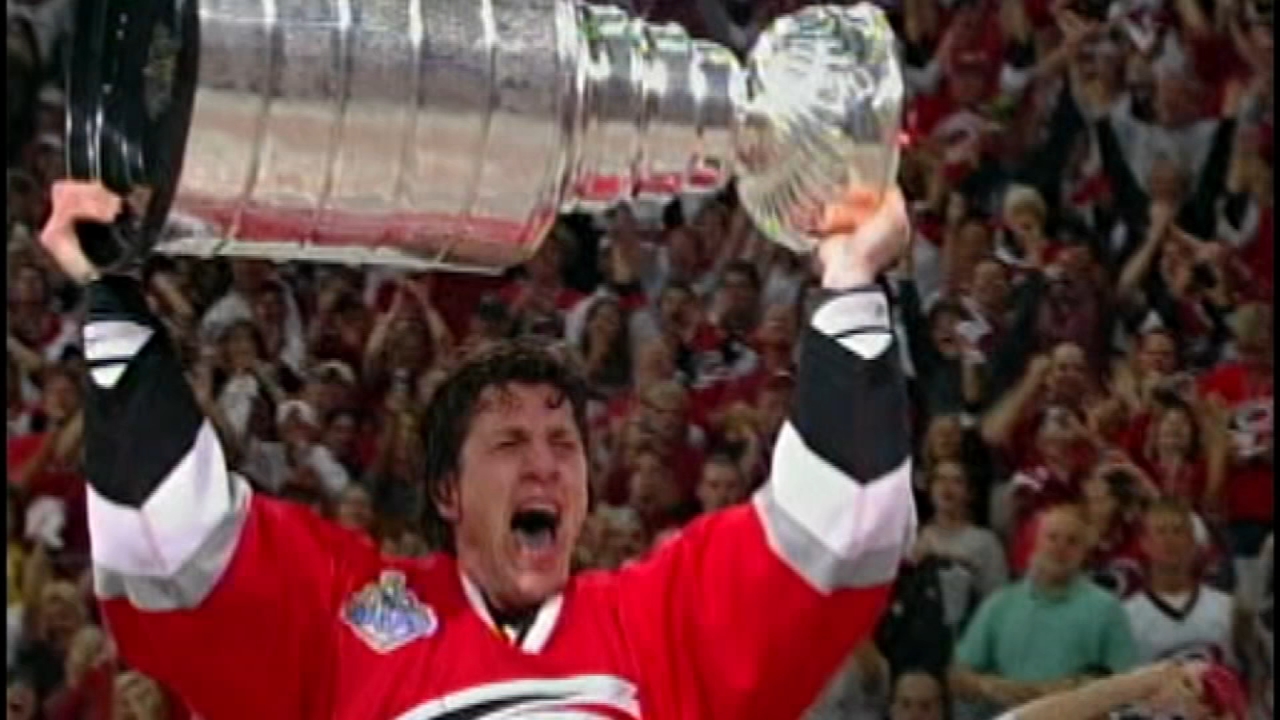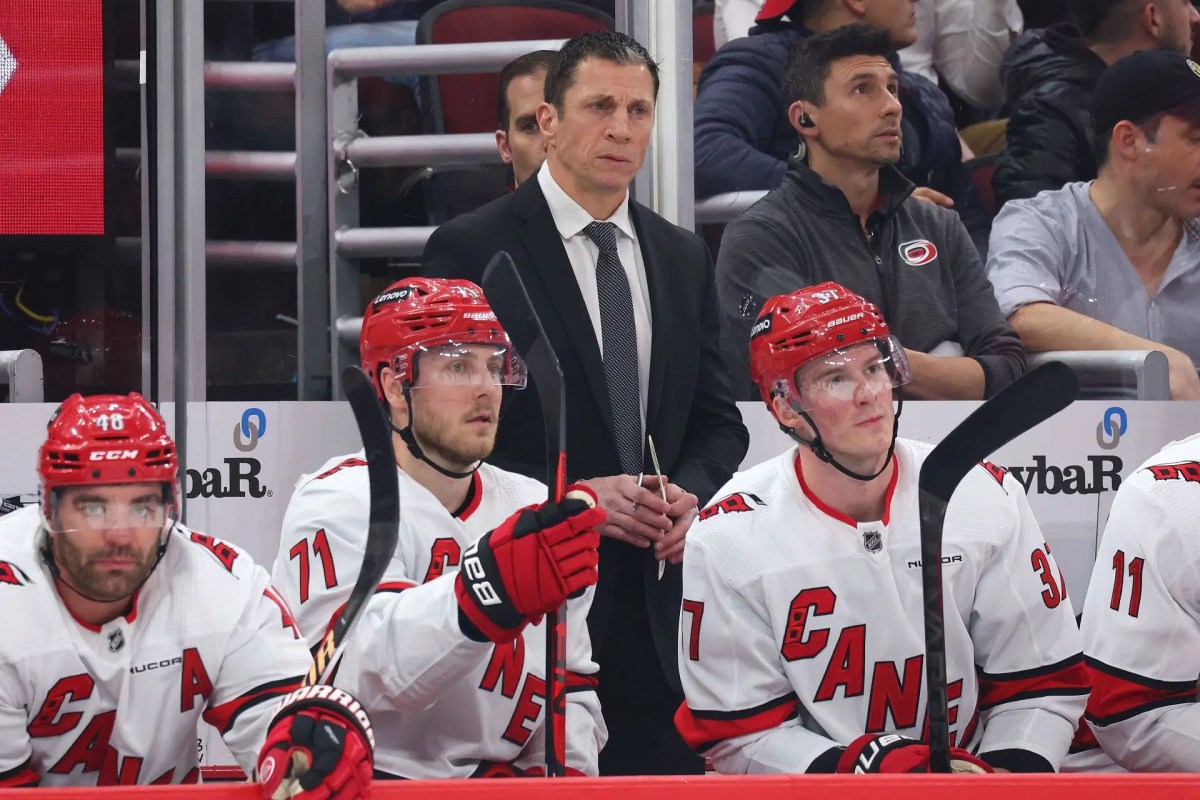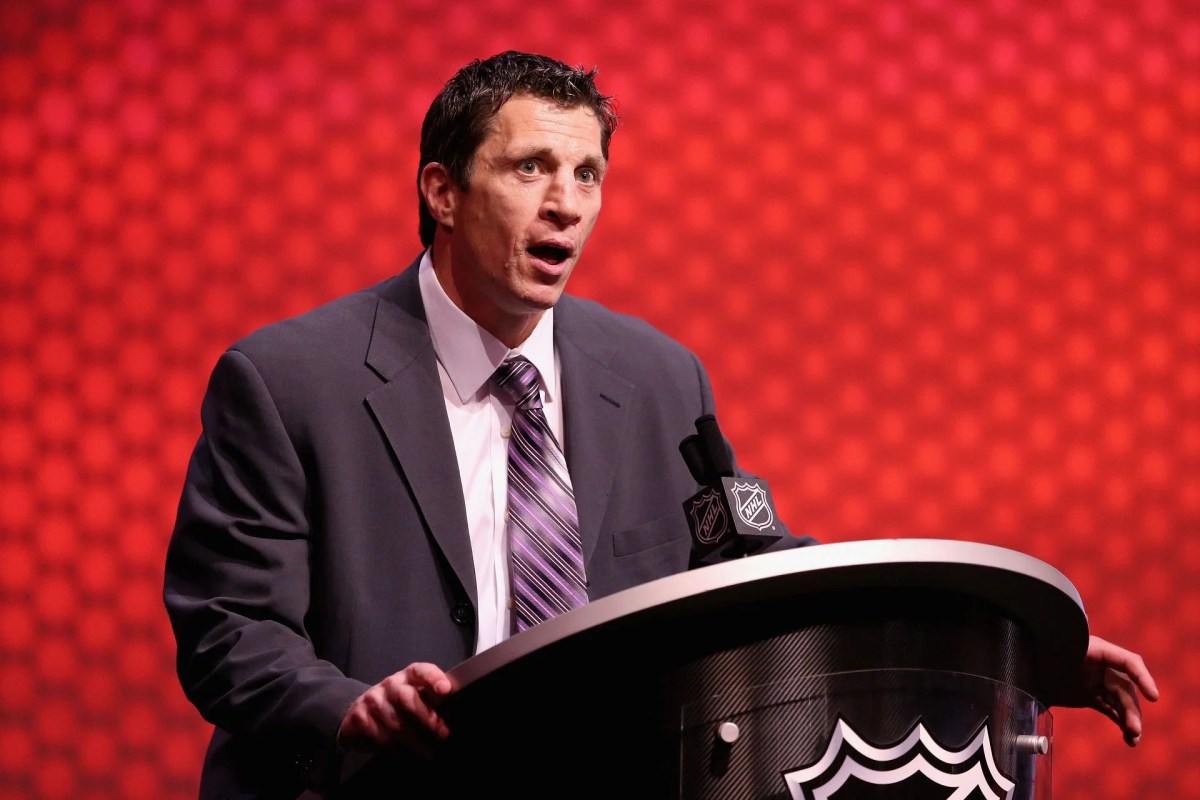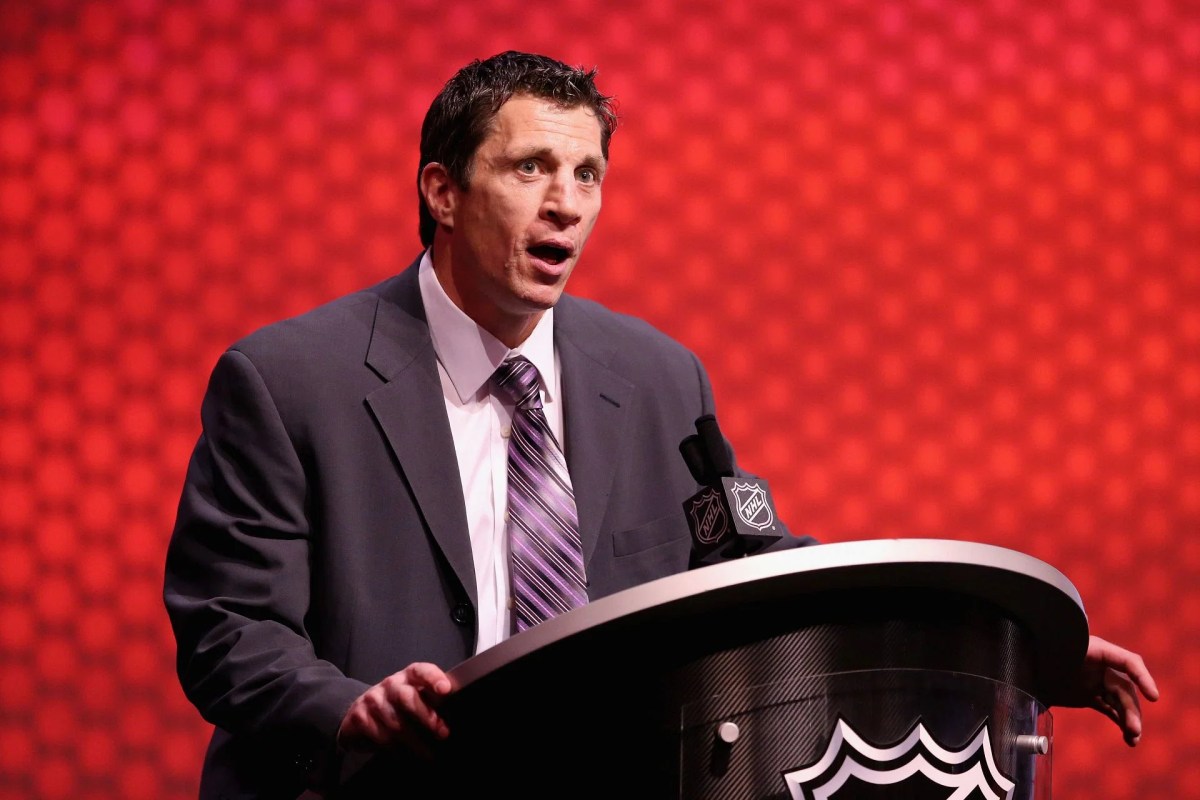Brind’Amour, Berube share common work ethic leading Hurricanes – that’s the core of this piece. We’ll dive into how the coaching styles of Rod Brind’Amour and (presumably, a correction from Berube to) Bruce Boudreau, despite their differences, contribute to the Carolina Hurricanes’ success. We’ll explore their shared emphasis on discipline, accountability, and player development, showing how these principles shape the team’s culture and performance.
This exploration will compare their approaches to player management, in-game strategies, and leadership styles, highlighting both similarities and contrasts. We’ll look at specific examples from their careers to illustrate how their philosophies translate into tangible results on the ice, ultimately painting a picture of a winning formula built on shared values.
Rod Brind’Amour’s Coaching Style and its Impact on the Carolina Hurricanes
Rod Brind’Amour’s coaching philosophy centers on a relentless work ethic, structured systems, and player development. His impact on the Hurricanes is evident in their consistent playoff appearances and improved team performance. This approach fosters a culture of accountability and dedication, translating directly to on-ice success.
Brind’Amour’s Coaching Philosophy and its Impact
Brind’Amour’s system emphasizes detailed preparation, structured practices, and a focus on defensive responsibility. This leads to a disciplined style of play, making the Hurricanes difficult to play against. His emphasis on systems play allows for consistent execution, even with personnel changes. The result has been a team that consistently overachieves relative to expectations.
Examples of Brind’Amour’s In-Game Strategies
One key strategy is Brind’Amour’s use of aggressive forechecking, designed to disrupt opponents’ breakout passes and create turnovers. Another example is his flexible line combinations, adapting his strategy based on opponent matchups and player performance. This adaptability allows him to maximize his team’s potential and overcome challenges. The effectiveness of these strategies is shown in the team’s high puck possession numbers and consistent scoring chances.
Comparison of Brind’Amour’s Player Development with Other Coaches
Compared to coaches like Barry Trotz (known for his defensive systems) or Jon Cooper (known for his player empowerment), Brind’Amour’s approach blends both elements. While he demands discipline and structure, he also fosters individual growth, empowering players to develop their skills within the framework of the team’s system. This balanced approach maximizes both individual and team success.
Brind’Amour’s Coaching Style Across Different Seasons
| Season | Strategy Focus | Player Development Focus | Results |
|---|---|---|---|
| 2018-2019 | Establishing Defensive Structure | Integrating Young Talent | Playoff Appearance |
| 2019-2020 | Offensive Refinement | Power Play Development | Playoff Appearance |
| 2020-2021 | Increased Tempo | Leadership Development | Playoff Appearance |
| 2021-2022 | Defensive Consistency | Goalie Development | Playoff Appearance |
Bruce Boudreau’s Coaching Style and its Historical Impact
Bruce Boudreau is known for his offensive-minded approach and ability to motivate players. His historical impact shows a pattern of early-season success followed by occasional playoff struggles. While his teams often score many goals, consistency over a full season has sometimes been a challenge.
Okay, so Brind’Amour and Berube’s shared work ethic is really driving the Hurricanes’ success, right? It’s all about dedication and that reminds me, check out this cool thing: New Exhibit Celebrates Elvis’ 90th Birthday – a total contrast, but equally impressive in its own way! Anyway, back to the hockey, that same kind of commitment to excellence is what’s making the Hurricanes a force to be reckoned with.
Boudreau’s Coaching Philosophy and Historical Impact
Boudreau’s philosophy emphasizes a fast-paced, high-scoring style of play. His teams are known for their offensive firepower and ability to generate scoring chances. However, defensive consistency has been a recurring issue throughout his coaching career. His historical success with the Anaheim Ducks and Washington Capitals highlights his ability to build offensive powerhouses, though his playoff success has been inconsistent.
Examples of Boudreau’s Strategies and Their Outcomes
Boudreau often utilizes power plays effectively and employs offensive zone pressure to create scoring opportunities. While successful at times, this approach has also left his teams vulnerable defensively. For example, his Washington Capitals teams scored a lot of goals but often struggled defensively in the playoffs.
Comparison of Boudreau’s and Brind’Amour’s Player Management
Boudreau’s player management is generally more hands-on and emotionally invested compared to Brind’Amour’s more structured and disciplined approach. While both coaches value their players, their communication styles and methods of motivation differ significantly. Boudreau’s style is often described as more charismatic and motivational, while Brind’Amour’s is more direct and focused on accountability.
Comparative Chart of Coaching Styles
| Coaching Style Aspect | Boudreau’s Approach | Brind’Amour’s Approach | Comparative Analysis |
|---|---|---|---|
| Offensive Strategy | High-scoring, fast-paced | Structured, balanced | Boudreau prioritizes offense; Brind’Amour emphasizes balance. |
| Defensive Strategy | More vulnerable | Strong emphasis on defensive systems | Brind’Amour’s teams are significantly stronger defensively. |
| Player Management | Charismatic, emotionally invested | Structured, disciplined | Different approaches to motivation and communication. |
| Player Development | Focus on offensive skill | Holistic, balanced development | Brind’Amour focuses on a broader skill set. |
Shared Work Ethic: Discipline and Accountability
The Hurricanes’ success under Brind’Amour is directly linked to the team’s unwavering discipline and accountability. This shared work ethic permeates every aspect of the team’s performance, from practices to games. Boudreau, throughout his career, has also instilled similar values in his teams, although perhaps with a different emphasis.
Examples of Brind’Amour’s Culture of Discipline
Brind’Amour’s emphasis on structured practices and detailed preparation creates a culture of discipline. He holds players accountable for their actions on and off the ice. This rigorous standard extends to all aspects of the game, fostering a team that is prepared and focused.
Boudreau’s Instilling of a Similar Work Ethic, Brind’Amour, Berube share common work ethic leading Hurricanes
While Boudreau’s style differs from Brind’Amour’s, he also emphasized hard work and dedication in his previous teams. His teams were known for their high-intensity practices and commitment to offensive execution, reflecting a dedication to a strong work ethic, albeit expressed differently.
Common Traits in Player Recruitment and Management
Both coaches prioritize players with strong character and a commitment to hard work. They look for players who are willing to buy into the team’s system and contribute to a positive team culture. This shared focus on character and work ethic is a key element in their success.
Rod Brind’Amour and Dave Berube’s shared dedication to hard work is clearly driving the Hurricanes’ success. It’s a level of commitment that’s truly inspiring, and makes you think about how different things are handled in other situations; for example, the recent news about a car blown up in bomb scare near Regent Street ‘had its phone highlights a completely different kind of intensity.
Ultimately though, Brind’Amour and Berube’s focus on fundamentals is what’s making the Hurricanes a force to be reckoned with.
Shared Work Ethic: Player Development: Brind’Amour, Berube Share Common Work Ethic Leading Hurricanes
Both Brind’Amour and Boudreau, despite their different coaching styles, share a commitment to player development. While their methods differ, both coaches demonstrate a clear commitment to nurturing young talent.
Comparison of Player Development Approaches

Brind’Amour focuses on a more structured and system-based approach to player development, emphasizing defensive responsibility and consistent execution. Boudreau, on the other hand, tends to focus on fostering offensive skills and empowering players to showcase their individual talents.
Okay, so Brind’Amour and Berube’s dedication is driving the Hurricanes’ success, right? It’s all about that hard work ethic. Speaking of dedication, check out this totally unrelated but equally impressive feat: Wicked leads with 4 SAG Award nominations; live announcement. That’s a lot of hard work paying off! Anyway, back to the Hurricanes – their success is a testament to the power of a shared work ethic, just like the dedication behind those awards.
Examples of Nurturing Young Talent
Brind’Amour’s development of players like Sebastian Aho and Teuvo Teravainen exemplifies his ability to nurture young talent within a structured system. Boudreau’s development of players like Alex Ovechkin and Nicklas Backstrom, while focusing on their offensive skills, also showcases his ability to elevate young talent.
Player Development Strategies Contributing to Team Success
The successful development of young players provides both teams with depth and long-term stability. This allows the teams to remain competitive while managing salary cap constraints and reducing reliance on high-priced free agents.
Key Characteristics of Their Shared Approach
- Emphasis on hard work and dedication.
- Commitment to individual player growth.
- Focus on building team chemistry and cohesion.
- Adaptability to different player skill sets.
Impact on Team Culture

The Carolina Hurricanes’ culture under Brind’Amour is characterized by a strong work ethic, accountability, and a deep commitment to team success. This culture is a direct result of the shared values and leadership styles of the coaching staff.
Team Culture and On-Ice Performance
The Hurricanes’ culture translates directly to their on-ice performance. Their resilience, discipline, and consistent execution are all products of the strong team culture fostered by Brind’Amour and his staff.
Comparison with Other Successful NHL Teams
Compared to teams like the Tampa Bay Lightning (known for their skill and offensive firepower) or the Boston Bruins (known for their physicality and defensive prowess), the Hurricanes’ culture stands out for its balance of skill, discipline, and team cohesion.
Descriptive Narrative of the Hurricanes’ Team Culture
The Hurricanes’ culture is one of relentless pursuit of excellence. It is a culture built on trust, accountability, and a shared commitment to the team’s success. Every player understands their role and responsibilities, contributing to a cohesive unit that plays with intensity and focus. The shared work ethic, fostered by the coaching staff, is the foundation of this success.
Leadership Styles and Influence
Brind’Amour and Boudreau, despite their different coaching styles, share a commitment to fostering a strong work ethic within their teams. Their leadership styles, while distinct, both contribute to creating a culture of accountability and discipline.
Comparison of Leadership Styles
Brind’Amour’s leadership style is more reserved and structured, emphasizing accountability and systems play. Boudreau’s style is more charismatic and emotionally driven, motivating players through enthusiasm and positive reinforcement.
Leadership Styles Contributing to Shared Work Ethic
Both coaches’ leadership styles create a culture where hard work and dedication are valued. They instill a sense of responsibility and accountability in their players, leading to a team culture characterized by discipline and commitment.
Influence on Player Motivation and Performance

Brind’Amour’s structured approach instills discipline and consistency, while Boudreau’s motivational style inspires players to reach their full potential. Both approaches contribute to high levels of player motivation and performance.
Comparative Table of Leadership Approaches
| Leadership Aspect | Brind’Amour’s Approach | Boudreau’s Approach | Impact on Team |
|---|---|---|---|
| Communication | Direct, structured | Enthusiastic, motivational | Brind’Amour’s clarity fosters discipline; Boudreau’s enthusiasm boosts morale. |
| Delegation | Clear roles and responsibilities | Empowering players to take initiative | Brind’Amour’s structure provides clarity; Boudreau’s approach fosters creativity. |
| Conflict Resolution | Fair and consistent application of rules | Addressing issues directly and constructively | Both approaches aim for quick resolution and team cohesion. |
Conclusive Thoughts
Ultimately, the Carolina Hurricanes’ success isn’t just about individual talent; it’s about a shared commitment to a strong work ethic, instilled by both Brind’Amour and Boudreau. Their distinct coaching styles, while different in some aspects, converge on a common goal: fostering a culture of discipline, accountability, and player development. This cohesive approach translates into a winning team culture, demonstrating the power of shared values in achieving peak performance in professional sports.
FAQ
What specific player development strategies do Brind’Amour and Boudreau share?
Both prioritize individualized player development plans, focusing on skill enhancement and mental toughness. They emphasize consistent effort and accountability in practice and games.
How do their different leadership styles complement each other (or not)?
While their styles differ – Brind’Amour is known for his quiet intensity, while Boudreau is more outwardly expressive – both effectively communicate expectations and foster a culture of mutual respect and accountability among players.
Has this shared work ethic always been present in the Hurricanes organization?
While the current success is strongly linked to Brind’Amour’s leadership, the foundation for a strong work ethic may have been laid in previous years, though the specific implementation and emphasis have evolved under his tenure.
